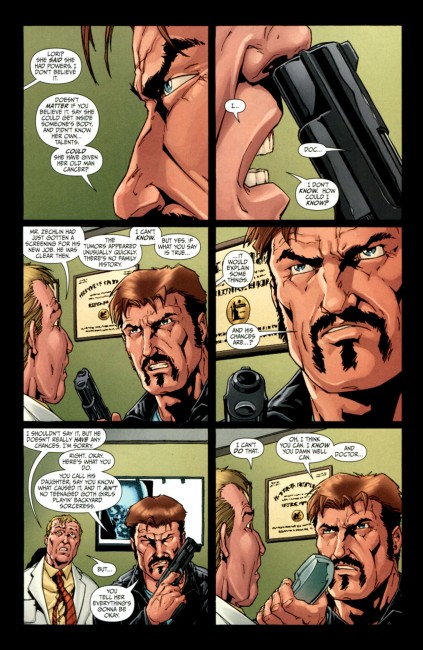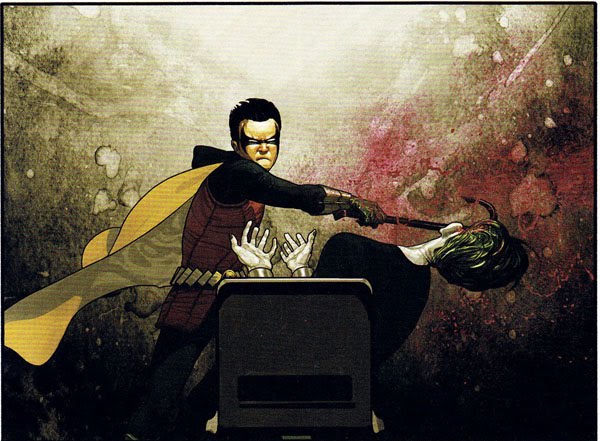
The Perverted Needs of Forty-Five Year Old Men
September 12th, 2010 Posted by Esther Inglis-ArkellI won’t pretend that anyone on this blog hasn’t read David’s post on Darwyn Cooke’s remarks about what it would take for him to jump back into mainstream comics. The first sentence out of his mouth is this:
“I want them to stop catering to the perverted needs of forty-five year old men.”
He elaborates, citing the sex, violence, and general unwholesome behavior seen in mainstream comics continuity. There are ninety-seven comments on the post, each with their take on how Mister Cooke’s words can be taken. I think he expressed himself clearly and concisely, but I’m still not sure if I agree with him.
I don’t think I have any problem with people catering to the needs, perverted or not, of forty-five year old men. In fact, I think some of the problem with comics is the fact that the big companies still cling to the notion that they don’t sell sex. Through the nineties and the early two thousands we saw Wonder Woman’s costume creep up her butt cheeks until they were hanging out like Christmas ornaments with a ribbon between them, and why? Because there was mainstream respectability to be maintained. Evil Mary Marvel was the Woman of a Thousand Strategic Shadows for while, because DC comics doesn’t do porn. Meanwhile Shield agents at Marvel are wandering around nude and painted blue, because if you have Victoria Hand and Maria Hill and Steve Rogers, you’re not going to waste them, but Marvel characters also don’t appear in porn.
In many ways, this seems like the worst of two worlds. Mainstream continuity and art are hijacked by the need to make things as violent, suggestive, and sexually explicit as possible. Meanwhile, those sexually explicit stories are constrained due to a need for the One Established Character not to push certain boundaries. The result is a comic that seems to be walking an unpleasant line. They put in as much as they can to serve those with, ah, less than literary needs, without alienating other fans. Meanwhile they scale down as much of the sex and violence as they can without alienating the loyal pervs who make Rule 34 so well represented in comics. It’s a stripper with pasties, a nude scene with a bad body double – it seems to satisfy no one.
Sometimes I wish that comics would finally take the plunge that they hint at with so many hardcore alternate universe versions of characters. If there’s so much money in satisfying the perverted needs of forty-five year old men (and for that matter, forty-five year old women, and eighteen year old boys and teenage girls who would undoubtedly read about a teenage Batman who sparkles) then maybe it’s time to do it. There isn’t any doubt that it would be lucrative, and taking away the constraints of the continuity and the increasingly nebulous age ratings system might give those artists who want to pursue a more violent, sexual, or obscenity-laden direction the freedom to write really good stories. Meanwhile regular continuity can stop trying to split the difference between hardcore and all-ages stories.
I realize that this won’t happen. Big companies, owned by bigger companies, have images of these icons to maintain, and pornography, extreme violence, and obscenity don’t fit those images. It may even be wrong-headed. Movies have ratings for extreme violence, but that doesn’t mean that the violence level that’s considered appropriate for younger kids isn’t being pushed. And it’s not like the availability of porn has meant that movies and books are more likely to showcase serious artistic endeavors. At the same time, this system seems to be satisfying nobody. Maybe it’s time for a change.


